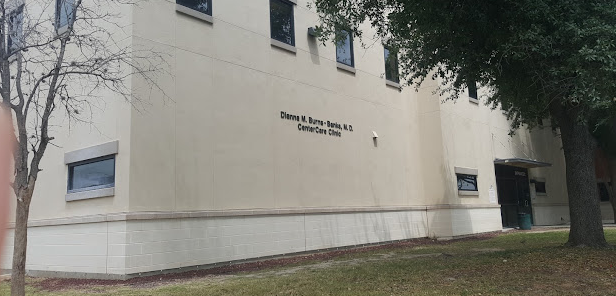Center for Healthcare Services

Contact Details
-
Name:Center for Healthcare Services
-
Address:601 North Frio Street
San Antonio, TX - 78207 -
Phone:210-261-3032
-
Email:
-
Instagram:
-
Website:
Description
There are currently state and federally funded or sponsored drug and alcohol treatment centers in the state of Texas
Questions & Answers
Help others like you find out more about Center for Healthcare Services. Do you know the answers to any of these questions? Contribute now and help others like you.
What kinds of care do they offer?
-
Substance use treatment
Refers to a broad range of activities or services, including identification of the problem (and engaging the individual in treatment); brief interventions; assessment of substance abuse and related problems including histories of various types of abuse; diagnosis of the problem(s); and treatment planning, including counseling, medical services, psychiatric services, psychological services, social services and follow-up for persons with alcohol or other drug problems (Institute of Medicine, 1990).
-
Detoxification
Treatment given to people who are addicted to drugs or alcohol in order to stop them from being addicted.
What types of opioid treatment do they provide?
-
Accepts clients using MAT but prescribed elsewhere
-
Lofexidine or Clonidine detoxification
What types of treatment approaches do they offer?
-
Substance use disorder counseling
A short-term treatment that has been generalized for a variety of disorders including opiate drug dependence and cocaine abuse. The therapy includes supportive techniques which encourage the patient to discuss personal experiences, and expressive techniques, which enable the patient to work through interpersonal relationship issues and gain greater self-understanding.
-
Brief intervention
A short-term intervention, usually one to five sessions, for substance abusers who are not yet dependent.
-
Motivational interviewing
A counseling approach which acknowledges that many people experience ambivalence when deciding to make changes. Its aim is not to focus immediately on the action of changing, but to work to enhance motivation to change.
-
Smoking not permitted
Smoking is not allowed.
What type of setting is this location?
-
Residential/24-hour residential
-
Short-term residential
-
Residential detoxification
Who is responsible for the operation of this facility?
-
State government
Government of a country subdivision in a federal form of government, which shares political power with the federal or national government and must meet certain standards set by the federal government, but are free to expand beyond what exists at the federal level and improve services, access, and protections for consumers, such as mental health and substance abuse services, in that state.
What types of license or certifications or accreditation does this facility posses?
-
State Substance use treatment agency
Government organization responsible for planning, organizing, delivering, and monitoring substance use disorder services in their respective state.
-
State mental health department
Government organization responsible for planning, organizing, delivering, and monitoring critical mental health services in their respective state.
-
Commission on Accreditation of Rehabilitation Facilities (CARF)
An independent non-profit accreditor of health and human services.
What types of payment or funding do they accept?
-
Cash or self-payment
Payment for treatment is made by the person directly, through cash or other means, rather than using health insurance.
-
Medicaid
A joint federal and state program that helps with medical costs for some people with low incomes and limited resources. Medicaid programs vary from state to state.
-
Federal, or any government funding for substance use treatment programs
Financial assistance provided by the federal, state, or local government for substance use treatment.
-
SAMHSA funding/block grants
Mandated by Congress, SAMHSA's block grants are noncompetitive grants that provide funding for substance abuse and mental health services. Eligible entities must submit an annual application to demonstrate statutory and regulatory compliance in order to receive the formula-based funding. There are two block grant programs: (1) Substance Abuse Prevention and Treatment Block Grant (SABG); and (2) Community Mental Health Services Block Grant (MHBG).
Is any payment assistance available?
-
Sliding fee scale (fee is based on income and other factors)
Variable prices for services based on a person?s ability to pay.
-
Payment assistance (check with facility for details)
A program which helps low-income, uninsured, or underinsured patients who need help paying for all or part of their medical bills.
What language services are offered?
-
Sign language services for the deaf and hard of hearing
Service provided for persons who are deaf and hard of hearing.
-
Spanish
Staff counselors provide treatment in Spanish.
What types of recovery support services are offered here?
-
Mentoring/peer support
-
Self-help groups
Groups in which members share the same issue, condition, or situation and thus are in a position to provide help and support to each other.
What specific pharmacotherapy treatments do they provide?
-
Nicotine replacement
Administers nicotine to the body by means other than tobacco, without other harmful chemicals found in tobacco. Common forms of nicotine replacement therapy are nicotine patches, nicotine gum or lozenges, nasal spray and inhaler. The goal of nicotine replacement is to prevent cravings in a tobacco user, allowing the person to abstain from tobacco.
-
Clonidine
-
Medication for mental disorders
What types of screening and assessment methods are used here?
-
Screening for tobacco use
Determines a client's use of tobacco products, such as cigarettes, cigars, pipe tobacco, or smokeless tobacco. It is generally recommended that providers screen for tobacco use on a regular basis by asking clients, as they are seen, about their current and past use of tobacco products and their exposure to secondhand smoke or tobacco.
-
Comprehensive substance use assessment
-
Screening for mental disorders
Test to determine whether a person is experiencing symptoms of mental health conditions and needs treatment.
-
Screening for substance use
Test to determine whether a person is experiencing symptoms of substance use and needs treatment.
-
Complete medical history/physical exam
What kinds of education and counseling services are offered here?
-
Smoking/vaping/tobacco cessation counseling
Includes interventions for persons who use tobacco and want help with stopping, including behavioral support or counseling in groups or individually.
-
HIV or AIDS education, counseling, or support
Access to education, counseling, and support groups to ?at risk? individuals and also individuals who have been infected with the virus.
-
Health education services other than HIV/AIDS or hepatitis
Any combination of learning experiences designed to help individuals and communities improve their health, by increasing their knowledge or influencing their attitudes.
-
Substance use disorder education
-
Hepatitis education, counseling, or support
Provides education, counseling, and guidance and support for individuals who are at risk for or potentially infected with the hepatitis virus.
What types of addiction detox does this facility offer?
-
Alcohol Detoxification
-
Benzodiazepines Detoxification
Used to help patients safely and successfully purge their bodies of Benzodiazepines, or Benzos, so that they can proceed to the next stage of addiction treatment.
-
Cocaine Detoxification
-
Methamphetamines detoxification
-
Opioids detoxification
-
Medication routinely used during detoxification
What age groups are accepted here?
-
Young Adults
Facility accepts young adults (13-25) for treatment.
-
Adults
Facility accepts adults (26-64) for treatment.
What genders are accepted here?
-
Female
-
Male
What kinds of transitional services do they provide if any?
-
Aftercare/continuing care
-
Discharge Planning
A process that aims to improve the coordination of services after discharge from the hospital by considering the patient?s needs in the community.
-
Naloxone and overdose education
-
Outcome follow-up after discharge
What types of testing do they offer?
-
Breathalyzer or blood alcohol testing
A device for estimating blood alcohol content (BAC) from a breath sample.
-
Drug or alcohol urine screening
Analyzes your urine for the presence of certain illegal drugs and prescription medications.
-
HIV testing
Determines whether you are infected with HIV, a virus that weakens the immune system and can lead to acquired immunodeficiency syndrome.
-
TB screening
Skin tests that are used to screen people who are at high risk for TB exposure such as people with diseases or conditions that weaken their immune system.
-
Testing for Hepatitis C (HCV)
Test for Hepatitis C, which is usually done and recommended for persons currently injecting drugs, ever injected drugs, were prior recipients of transfusions or organ transplants, or have certain medical conditions, including persons: 1. who received clotting factor concentrates produced before 1987 2. who were ever on long-term hemodialysis 3. with persistently abnormal alanine aminotransferase levels (ALT) 4. who have HIV infection
What ancillary services are offered at this facility?
-
Mental health services
Assessment, diagnosis, treatment or counseling in a professional relationship to assist an individual or group in alleviating mental or emotional illness, symptoms, conditions or disorders.
Who provides the opioid medications used in treatment?
-
In-network prescribing entity
What types of alcohol abuse treatment are available at this facility?
-
Does not use medication assisted treatment for alcohol use disorder
Is vaping allowed at this facility?
-
Vaping not permitted
How do I apply for admission at this location?
Have you been to this facility? What was your experience?
Is there a wait-list for treatment center?
Is any payment required?
Related Posts
Center for Healthcare Services
- San Antonio, TX
- 2.70 miles away

